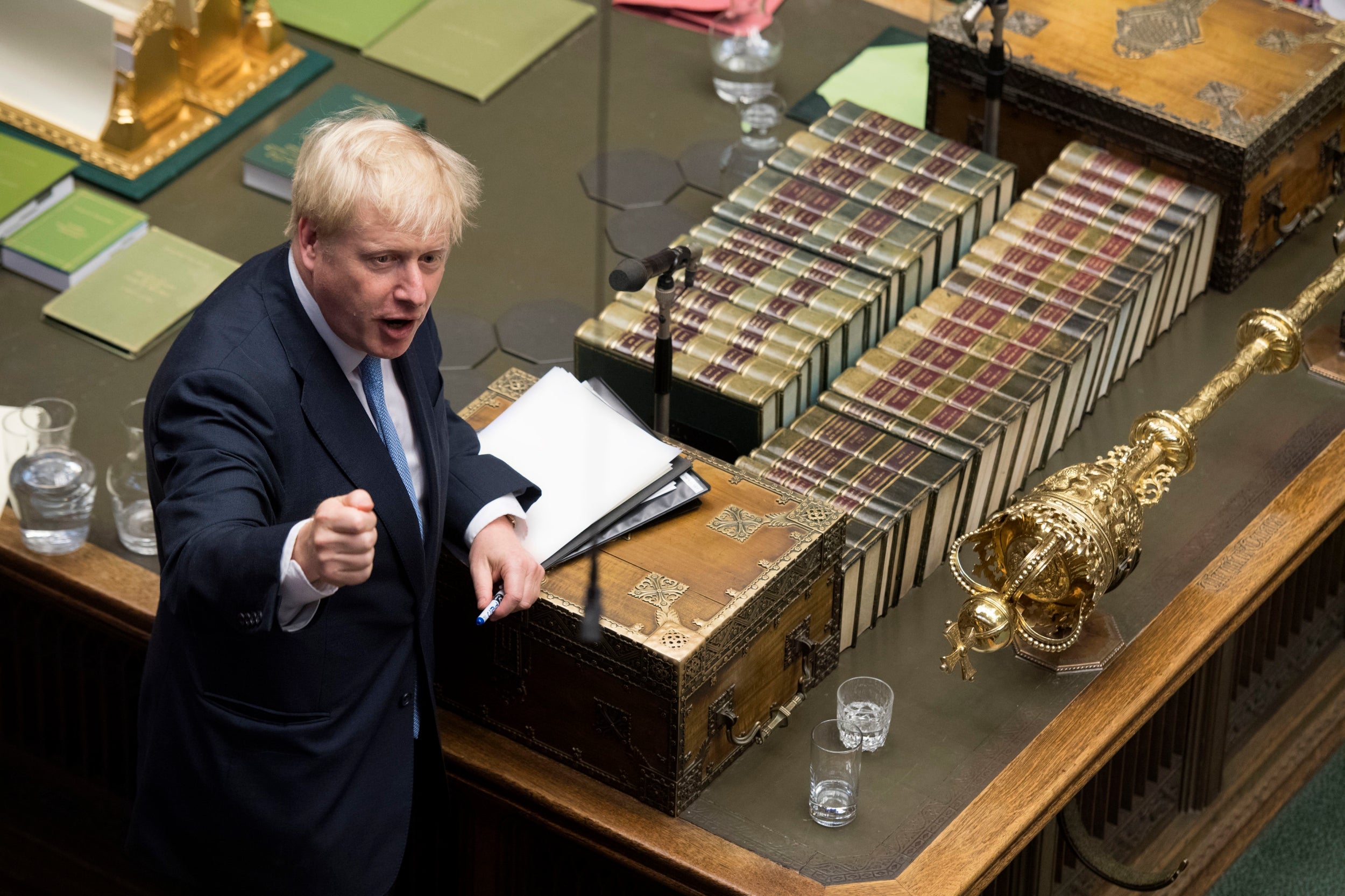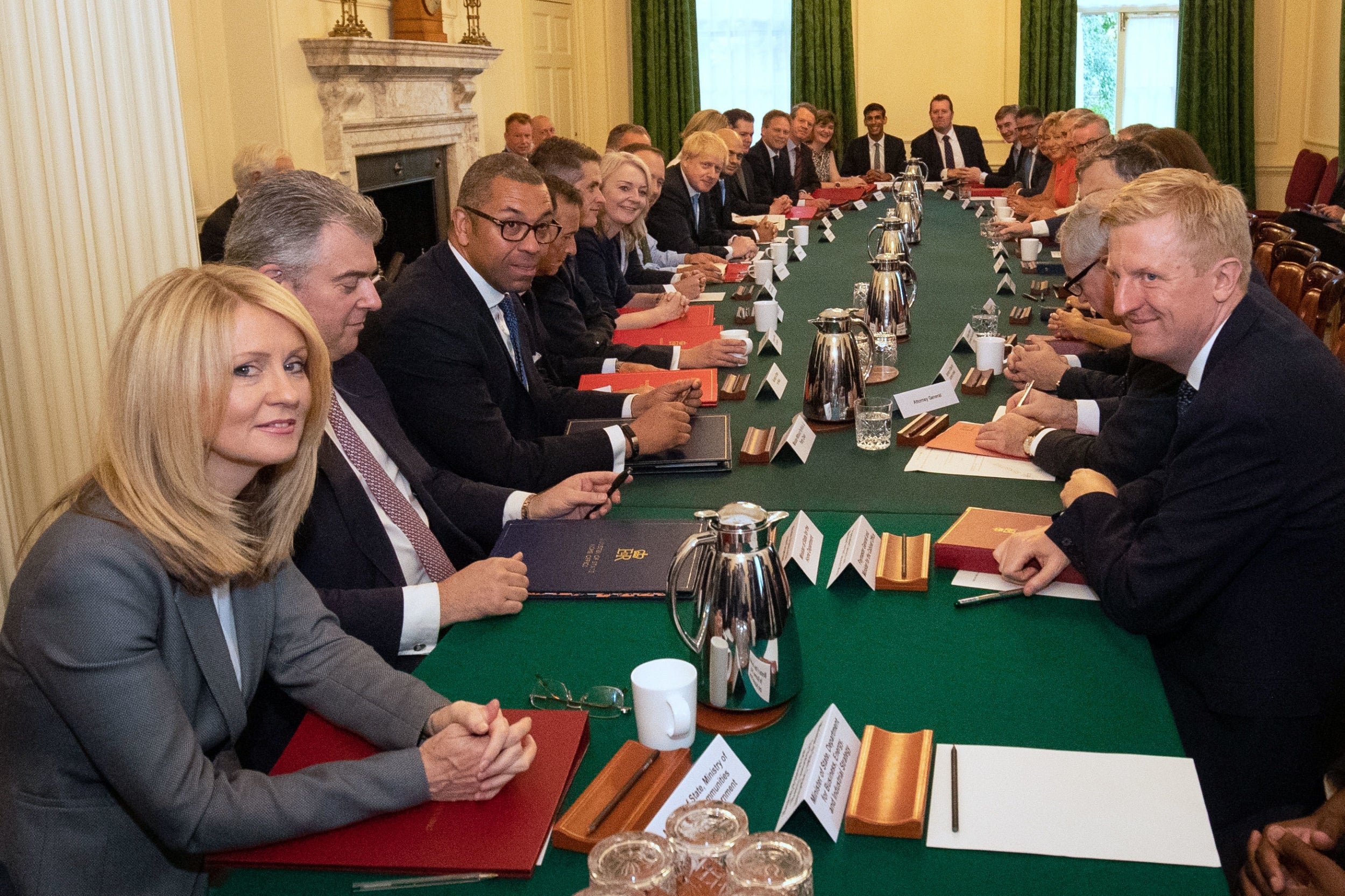Boris Johnson signals he will end austerity-era restraint by ripping up Hammond’s fiscal rules
Downing Street said the former chancellor’s targets to balance the books were ‘under review’
Boris Johnson has signalled he is ready to turn on the spending taps by ditching fiscal rules drawn up by former chancellor Philip Hammond to enforce austerity.
Downing Street said the rules were “under review”, suggesting that the new prime minister is preparing to ramp up borrowing to pay for an eye-wateringly expensive list of pledges on recruiting new police, reforming social care, boosting school funding and installing fibre broadband, as well as preparations for a no-deal Brexit.
Mr Johnson also made clear he is ready to ignore the former chancellor’s warnings and spend the £26bn “headroom” which Mr Hammond had built up to cushion the potential impact of leaving the EU without an agreement.
And in the case of no-deal, he confirmed he was ready to hold onto the £39bn promised to the EU by predecessor Theresa May as part of her withdrawal agreement – something that would embroil the UK in a legal tussle with Brussels.
Mr Hammond’s rules, set out in 2016 and confirmed in the following year’s Conservative manifesto, require the government to balance the nation’s books by the mid-2020s and to ensure that debt is falling as a share of GDP by the end of this parliament.
The former chancellor had overshot his targets to the extent that he built up “headroom” of £26bn which could be borrowed this year without breaching the rules.
But in his resignation letter, Mr Hammond warned Johnson that the money should only be spent if no-deal Brexit was averted, saying: “We bequeath to our successors, once a Brexit deal is done, the ability to choose – within the fiscal rules – between increased public spending, reduced taxes, higher investment or progress towards faster debt reduction … This is a luxury which our successors should use wisely.”
Asked whether the new administration was bound by the fiscal promises made at the 2017 election, Mr Johnson’s official spokesperson told reporters: “It’s a new government and those rules will be looked at. It will be under review.”

It is understood that one option under consideration is retaining the debt target, while permitting increased borrowing by dropping the ambition of getting the public finances in balance “as early as possible in the next parliament” and cyclically-adjusted borrowing below 2 per cent by the time of the next election.
In his first statement to the Commons as prime minister, Mr Johnson said he wanted to “start right away, providing vital funding for our frontline public services, to deliver better healthcare, better education and more police on the streets”.
He confirmed plans for 20,000 extra police, a “levelling up” in per-pupil spending in primary and secondary schools and investment in “vital infrastructure, fibre rollout, transport and housing”.
Downing Street later confirmed that plans to “turbo-charge” no-deal preparations under Michael Gove would mean an increase in the £4.2bn previously set aside by Mr Hammond.
“Will it cost more than the £4.2bn?” said the PM’s official spokesperson. “Yes it will. The prime minister has instructed the chancellor to ensure the funds necessary were available and the chancellor has agreed to that.”
Newly installed Treasury chief secretary Rishi Sunak insisted that the Conservatives “will always be the party of fiscal responsibility”.

But he made clear the new government was ready to raid Mr Hammond’s headroom: “Because we have done a good job, we are already meeting (the rules), which gives us the headroom. The £26bn can be deployed while still maintaining our fiscal rules.”
Asked if the rules might be changed, he said: “We are about to, obviously, as a new government, have a budget, have a spending review. It’s sensible to keep a good look on public finances.”
Downing Street played down the prospect of an emergency budget in the autumn.
Join our commenting forum
Join thought-provoking conversations, follow other Independent readers and see their replies
Comments
Bookmark popover
Removed from bookmarks